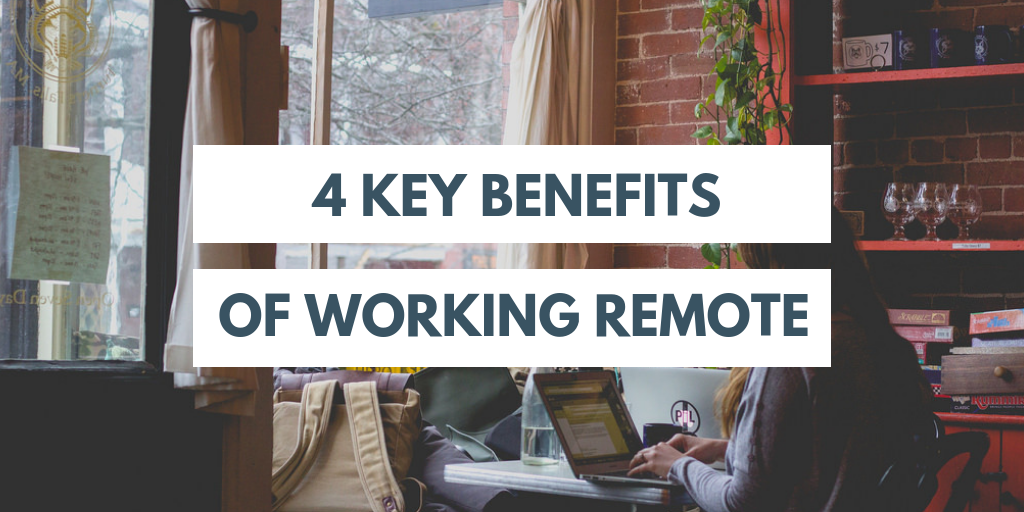Well before we got rid of our office and took our entire organization remote, the thought was on my mind for quite some time.
Running a software company certainly has its lifestyle advantages, I must admit. Being able to work from literally anywhere in the world is pretty awesome. I’ve read about several Saas companies managing their entire workforce remotely with no physical locations. Companies like Basecamp, Buffer, Chargify, Zapier and Groove to name a few, were running their businesses with dozens of employees without a physical office location. This was pretty inspiring to say the least.
I figured if these guys can do it, why can’t we?
For the past several years, we’ve invested a great deal of time on improving our internal efficiencies and processes, trying out and testing dozens (if not hundreds) of different tools and applications to help make our lives easier. Not knowing it, all these improvements within our organization over the years is what paved the way for us to be a 100% distributed team.
Other than the first year in business (while we were pretending to be a big mature company and working out of the basement), we’ve always had a physical office location. If I take a step back and ask myself what the purpose of an office is, the only answer that comes to mind is “because that’s just what I thought you’re supposed to do”. I understand that every business is different, and most still require an office, and we likely wouldn’t have got to where we are without our offices. I’m just speaking for myself and many other companies in my industry.
We had all of the right internal tools and applications in place, and got ourselves to a place where we were almost a turnkey operation. So when we decided to finally flip the switch and close down the office, the transition was seamless.
After a few months working remote, here are the main benefits I’ve found:
Productivity
The first thing I noticed is how much more productive I was. Our company is a relatively young group, and we’ve all gotten pretty close over the years. Combine that with a “tech-startup” office feel, and you can imagine the culture and environment we had. The work ethic of everyone on our team is phenomenal, (work ethic is the number one trait I look for when hiring new team members) so we were still able to get our work done despite the distractions.
When I started working remote from my home-office, right away I was able to focus 10x more on high-level tasks, which I feel has benefited the company tremendously. From feedback I gathered from the rest of the team, they all felt the same way. Productivity was a huge plus for our business.
Freedom
I’ve never felt so free and unrestricted since my teenage years, until I started working remotely. Knowing you don’t have to leave the house at the same time everyday to drive to the office, and not being on a fixed schedule is an incredible feeling – almost as if shackles have been released. For me, this sense of freedom led to much more creativity, both on a business and personal level. I’ve been able to be more open to new ideas and start thinking a lot more outside the box.
Lifestyle
As long as I have my laptop and a good internet connection, I can literally operate my entire organization from anywhere in the world. Since we’ve been working remotely, I’ve been able to travel quite a bit more than in the past. The ability to travel and work from anywhere you’d like, has significantly enhanced my lifestyle opportunities. The thought of living in different parts of the world for months on end is something that crosses my mind every single day. Although I haven’t made that jump (yet), I can realistically do it without a single negative side-effect on the business.
Transparency
When speaking about working remotely, I often get asked “but how do you have meetings and speak to your team?”. Well, quite easily in fact. Applications such as Slack and Trello have been game-changers for our internal setup. Working remotely has forced our entire team to be much more transparent and open. Unlike before, the entire company now knows what everyones focuses and objectives are at all times. This has made everyone much more accountable for their work, which in-turn has been decisive in moving our business forward, much faster.
Of course, not everything is sun and roses. There are a couple of drawbacks from working remotely:
Physical Interaction
When you’re in the office with everyone, you have an ear for what’s going on in every department. Even if you’re not working with a particular group of people, you always hear what’s going on. Whether it’s a support rep speaking to a client, a sales rep speaking to a lead, the marketing department working on branding, you get a much deeper feel for what’s going on in your company, and able to chime in when you hear something you like (or dislike).
Missing the Team
When you work with a group of people every single day for years, you create a bond, and they become part of your family. Naturally, you miss seeing your friends, all of the jokes and good times. We try and make an effort to set up lunches and dinners as often as we can. I’m glad to say however, that although we don’t see each other every day, our bond has definitely not been broken since working remotely.
If anyone wants any suggestions on great tools and apps for remote working, drop me a message!






